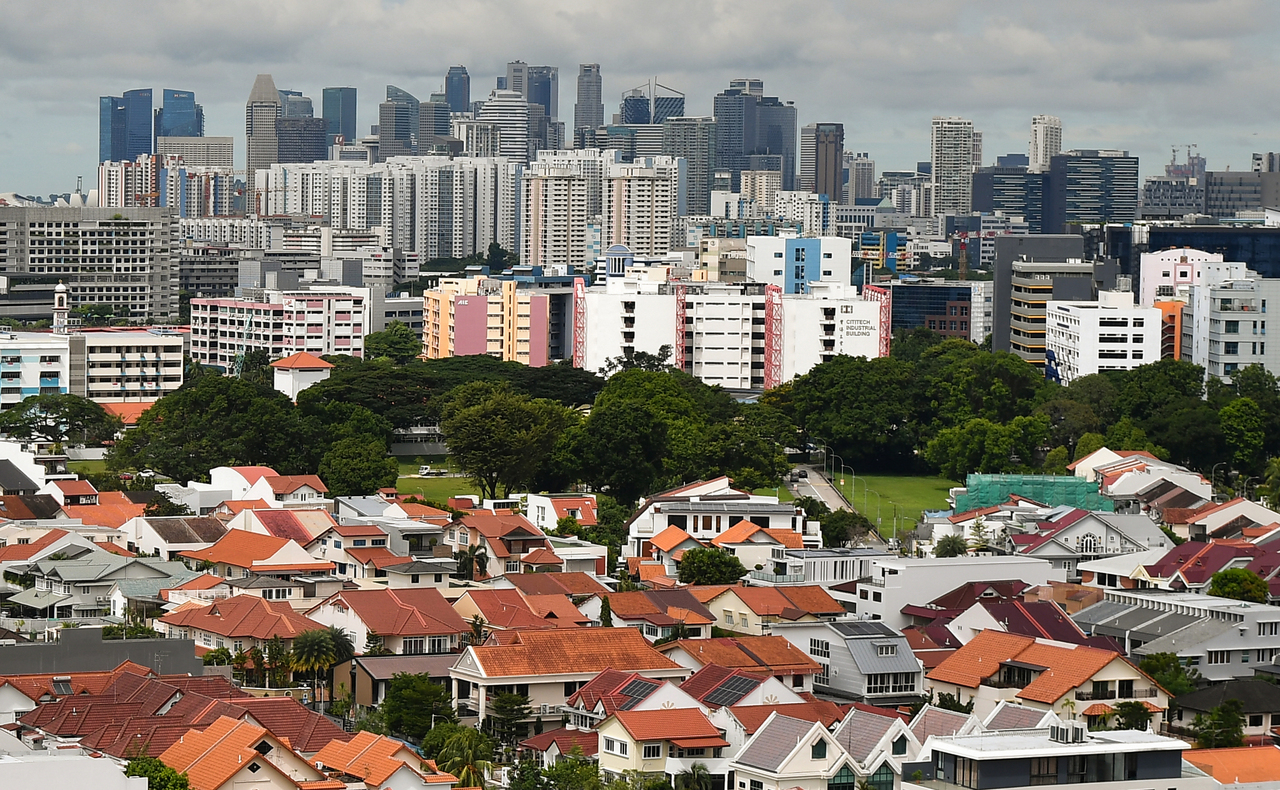Exercise financial prudence in home purchases given potential rising interest rates: Alvin Tan
Sign up now: Get ST's newsletters delivered to your inbox

There will be a small segment of highly-leveraged households who will be more constrained by interest rate rises.
PHOTO: ST FILE
SINGAPORE - All borrowers should exercise caution when buying their homes to avoid having to cut back on other household spending should interest rates rise sharply, said Minister of State for Trade and Industry Alvin Tan on Monday (April 4).
While the household debt situation in Singapore remains healthy, there will be a small segment of highly-leveraged households who will be more constrained by interest rate rises, said Mr Tan.
But most households should still be able to service their mortgages as Singapore's domestic interest rates pick up alongside global rates, he added.
"Monetary Authority of Singapore's (MAS) stress tests suggest that the median household mortgage servicing ratio will remain manageable even under scenarios of significantly higher interest rates or lower incomes," said Mr Tan, who is a MAS board member.
He was responding to parliamentary questions by Mr Saktiandi Supaat (Bishan-Toa Payoh GRC) and Mr Desmond Choo (Tampines GRC) on the impact of a higher interest rate environment on the household debt situation and mortgage rates here.
Last month, the US Federal Reserve raised interest rates by a quarter percentage point - or 25 basis points - and has signalled that there will be more hikes this year.
It is the first increase since 2018, after two years of holding borrowing costs near zero to insulate the economy from the Covid-19 pandemic.
Interest rates in Singapore are tied closely to the US' due to the Republic's open economy, in which banks conduct a lot of operations in international markets, where the US dollar is the main currency.
Mr Tan noted that although there is a need for prudence in borrowing as interest rates are expected to rise in the coming years, Singaporean households have generally been able to service and manage their debts.
Last year, the median total debt servicing ratio (TDSR) was at 43 per cent, well within the TDSR threshold of 55 per cent, which was tightened during the latest round of property cooling measures introduced in the tail end of last year, he said.
The TDSR threshold means that borrowers' total monthly loan repayments for property mortgages cannot exceed 55 per cent of their monthly income.
The credit profile of mortgages still remains healthy, with the proportion of delinquent mortgages at less than 1 per cent, noted Mr Tan.
"Households' net wealth grew even through the pandemic, with household assets growing faster than household debt. Households' liquid assets such as cash and bank deposits continued to exceed the total liabilities in aggregate," he added.
There are also a number of measures put in place by the MAS to ensure households are financially resilient, said Mr Tan.
For instance, the interest rate used to calculate loan repayment for residential property under the TDSR is not less than 3.5 per cent or the prevailing market interest rate, whichever is higher.
"This rate is about two percentage points higher than prevailing interest rates for new private property loans, which builds in a buffer for borrowers to service their mortgages across a normal interest rate cycle," he said.
A loan-to-value limit and restrictions on loan tenure also helped encourage greater financial prudence among mortgage borrowers of different profiles, he said.
On the business front, most Singapore-listed firms continue to hold sufficient liquidity as at the fourth quarter of last year, as their liquid assets continued to exceed their shorter-term liabilities with enough cash on-hand to provide additional buffers, said Mr Tan, in response to Mr Saktiandi's question on domestic outlook.
"The debt servicing of Singapore-listed firms remain manageable, with most firms having sufficient earnings to cover their interest expenses, even in prescribed stress scenarios of further increases in interest rates," he said.
However, there may be some highly-leveraged companies with low profit margins which may find increased borrowing costs eroding their cash flow. These could include small- and medium-sized enterprises which continue to underperform due to the Covid-19 restrictions.
"But the broader economic recovery should provide some reprieve as Singapore opens up and emerges from the pandemic," he added.


